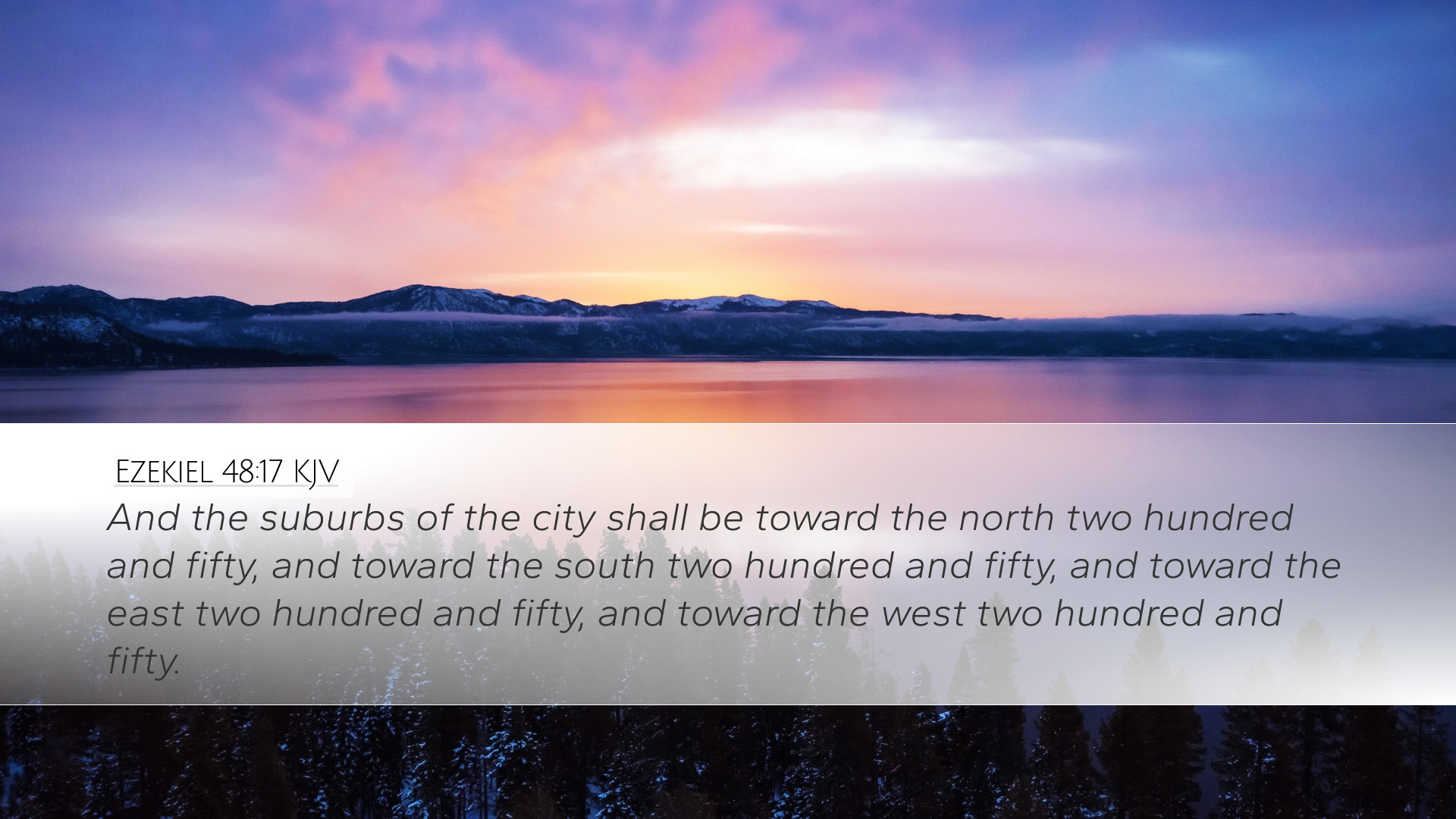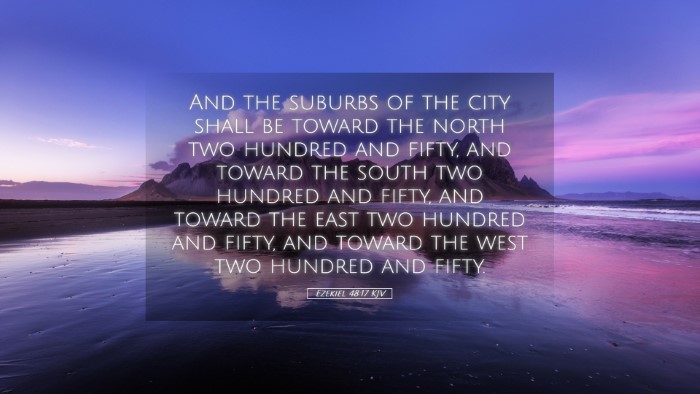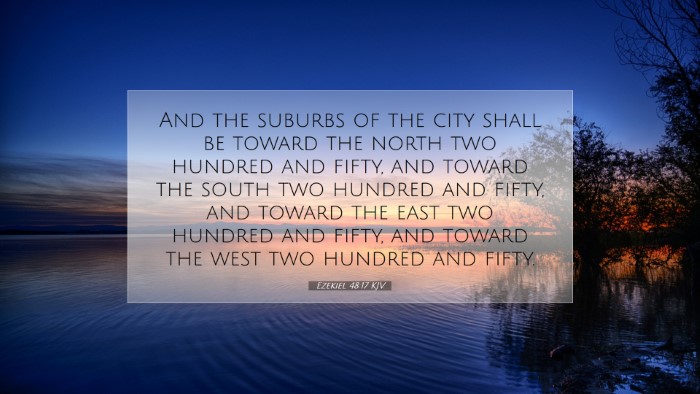Bible Commentary on Ezekiel 48:17
Ezekiel 48:17 (KJV): "And the suburbs of the city shall be toward the north two thousand and five hundred, and toward the south two thousand and five hundred, and toward the east two thousand and five hundred, and toward the west two thousand and five hundred."
Introduction
The passage of Ezekiel 48:17 closes the prophetic vision of the new Jerusalem and its allotment of the land to the tribes of Israel. This verse speaks to the precise measurements of the city and its suburbs, emphasizing the orderliness and divine planning of God’s restoration of His people.
Contextual Analysis
Within the broader context of the Book of Ezekiel, the prophet speaks to a people in exile, assuring them of God’s faithfulness to His covenant. The detailed descriptions of the land division and city layout are not merely administrative but are laden with theological significance.
Divine Order
As noted by Matthew Henry, the meticulous specifications imply that God’s plan is ultimately founded on order. The dimensions mentioned are designed to show that God's kingdom is a place of peace, reflecting His holiness and stability. The exactness of the measurements underlines God's providential care, ensuring that everyone has a portion in His kingdom.
Significance of the Suburbs
The mention of suburbs is critical. Adam Clarke elucidates that the suburbs serve as a buffer zone, indicating the separation between the holy and the common. This separation affirms the sacredness of the city itself. The suburbs allowed for agricultural activities, reflecting the agrarian lifestyle of the people, which was integral to their identity.
Measurements and Symbolism
-
Unity and Balance: Each side of the city—north, south, east, and west—receives equal measurements, portraying a sense of balance and completeness that is foundational in biblical numerology.
-
God’s Provision: The area allocated underlines God’s ample provision for His people. Albert Barnes emphasizes that this divine provision encapsulates more than mere physical needs; it extends to spiritual sustenance and security within the community of believers.
Theological Implications
Theologically, Ezekiel 48:17 invites readers to reflect on the nature of God’s kingdom. The fenced-off subdivisions not only represent spiritual sanctity but demonstrate God’s meticulous care for holiness among His people. The spacing of two thousand five hundred units creates a sense of security.
The Character of God’s Kingdom
The established boundaries around the city indicate that the kingdom of God is a realm where order, peace, and holiness prevail. Matthew Henry mentions that it is not just a physical territory but also a spiritual condition. The constraints imposed by the measurements signify divine authority and the rightful claim God has over His chosen people.
Practical Application for Today’s Believers
For pastors and congregants alike, Ezekiel’s vision serves as a reminder of God’s faithfulness. The precise alignment of the suburbs echoes God's attentiveness to the details in our lives. Believers are encouraged to approach life understanding that God has designated places and roles for each person within the greater community.
- Holiness in Proximity: The suburbs guide the faithful to live in proximity to holiness, encouraging a lifestyle that seeks to stay close to God.
- Community Identity: The idea that every individual has a place within the subsided area relates to versatile community dynamics, which emphasizes belonging and shared purpose.
- God’s Commitment to Us: This verse instills confidence in God's relentless commitment to fulfilling His promises, assuring believers of their place in His divine plan.
Conclusion
Ezekiel 48:17 provides profound insights into the nature of God's kingdom and His relationship with His people. By integrating the wisdom from Matthew Henry, Albert Barnes, and Adam Clarke, readers gain a comprehensive understanding of the text from both a historical and theological perspective. The vision of the orderly and defined allotments serves not only as a prophecy for Israel's restoration but also as an enduring truth about God's faithfulness throughout the generations.


